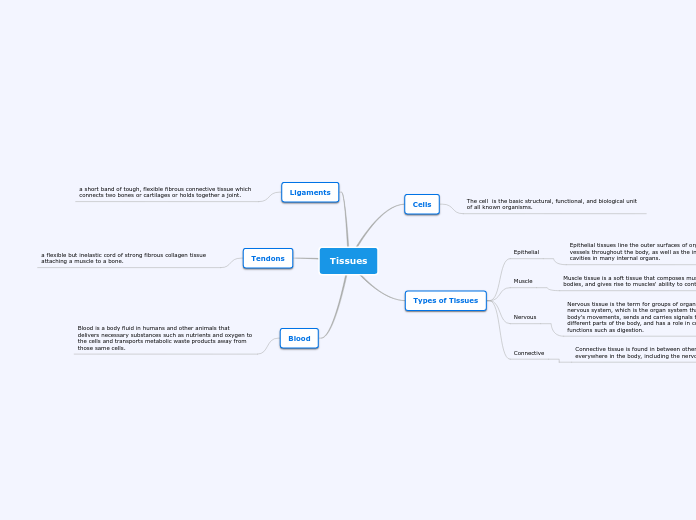
The cell is the basic structural, functional, and biological unit of all known organisms.
Epithelial
Epithelial tissues line the outer surfaces of organs and blood vessels throughout the body, as well as the inner surfaces of cavities in many internal organs.
Muscle
Muscle tissue is a soft tissue that composes muscles in animal bodies, and gives rise to muscles' ability to contract.
Nervous
Nervous tissue is the term for groups of organized cells in the nervous system, which is the organ system that controls the body's movements, sends and carries signals to and from the different parts of the body, and has a role in controlling bodily functions such as digestion.
Connective
Connective tissue is found in between other tissues everywhere in the body, including the nervous system.
a short band of tough, flexible fibrous connective tissue which connects two bones or cartilages or holds together a joint.
a flexible but inelastic cord of strong fibrous collagen tissue attaching a muscle to a bone.
Blood is a body fluid in humans and other animals that delivers necessary substances such as nutrients and oxygen to the cells and transports metabolic waste products away from those same cells.